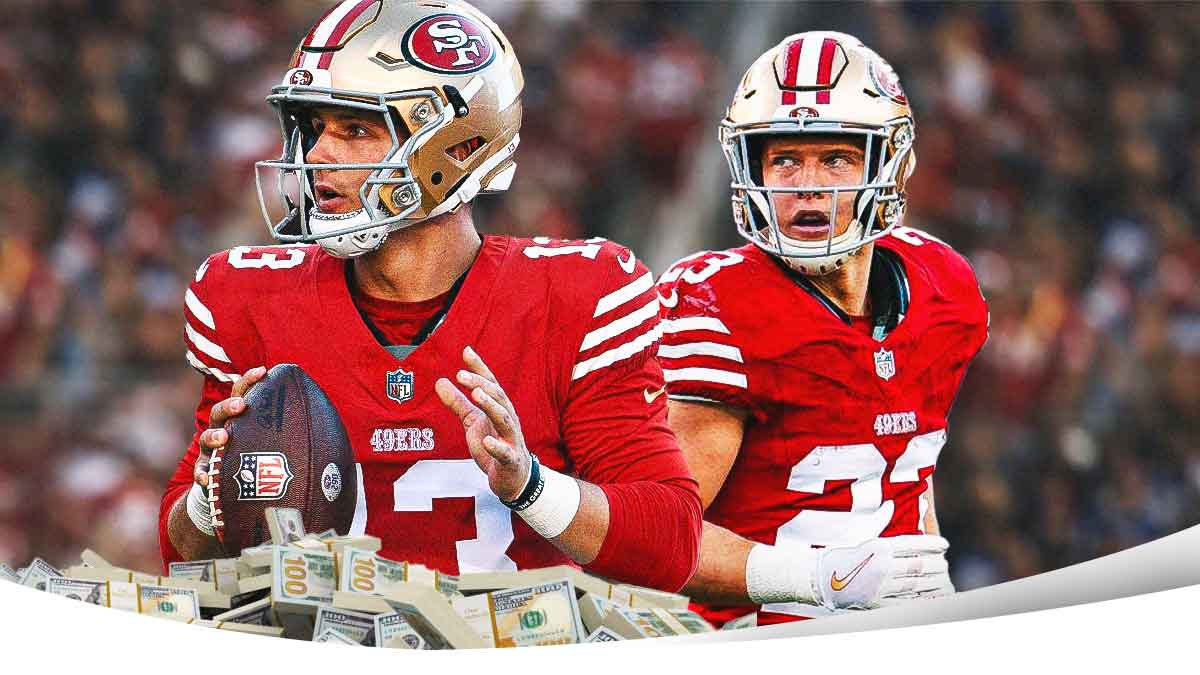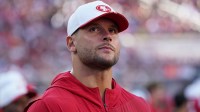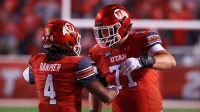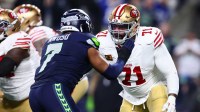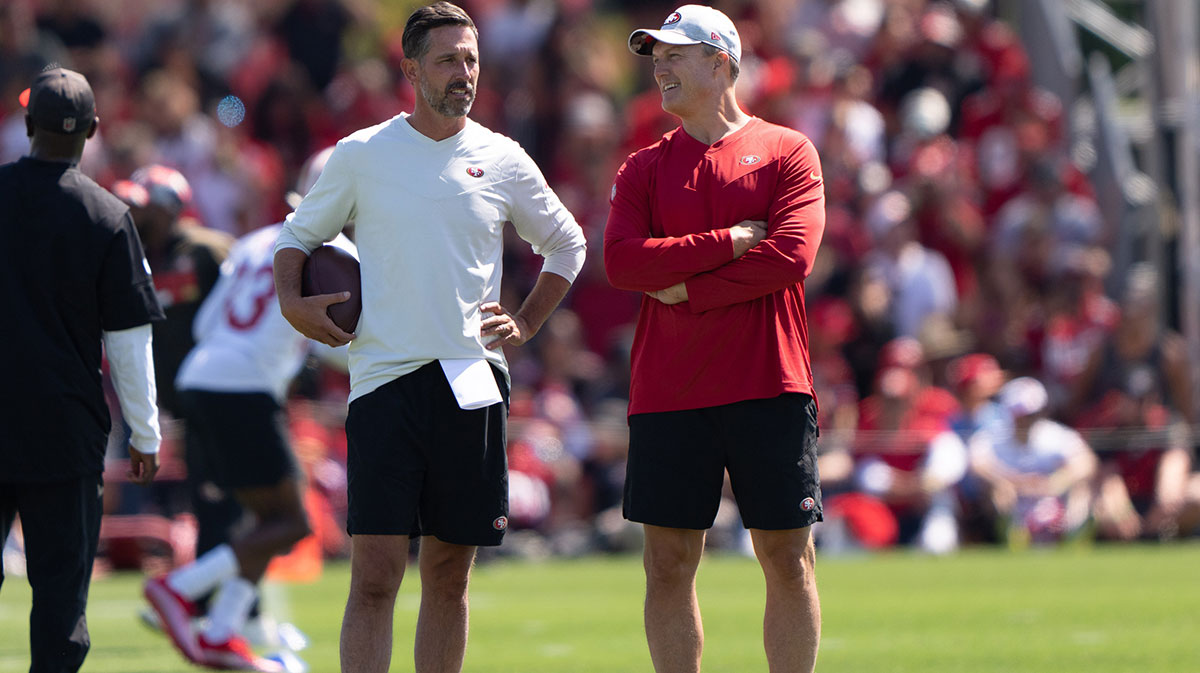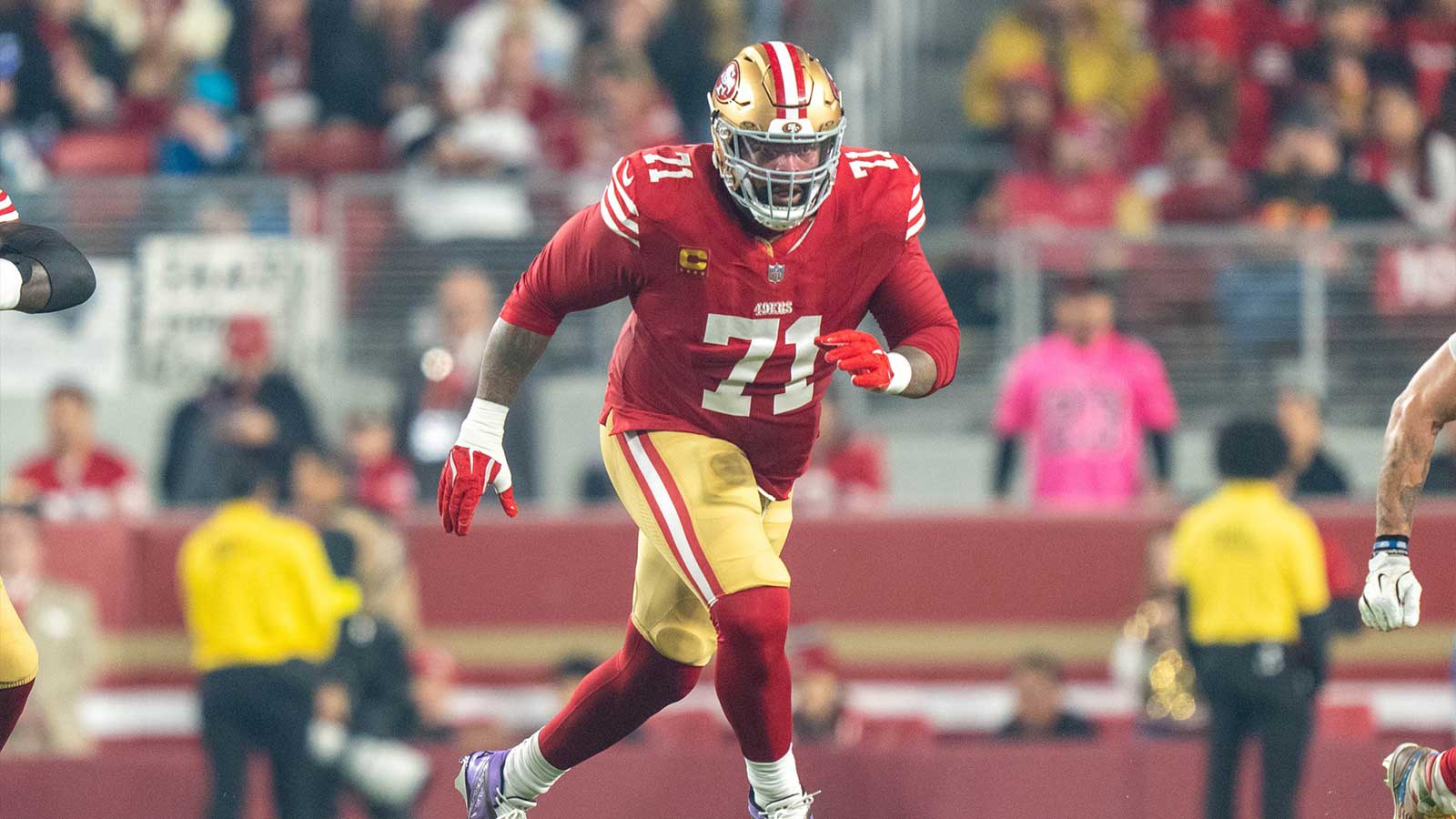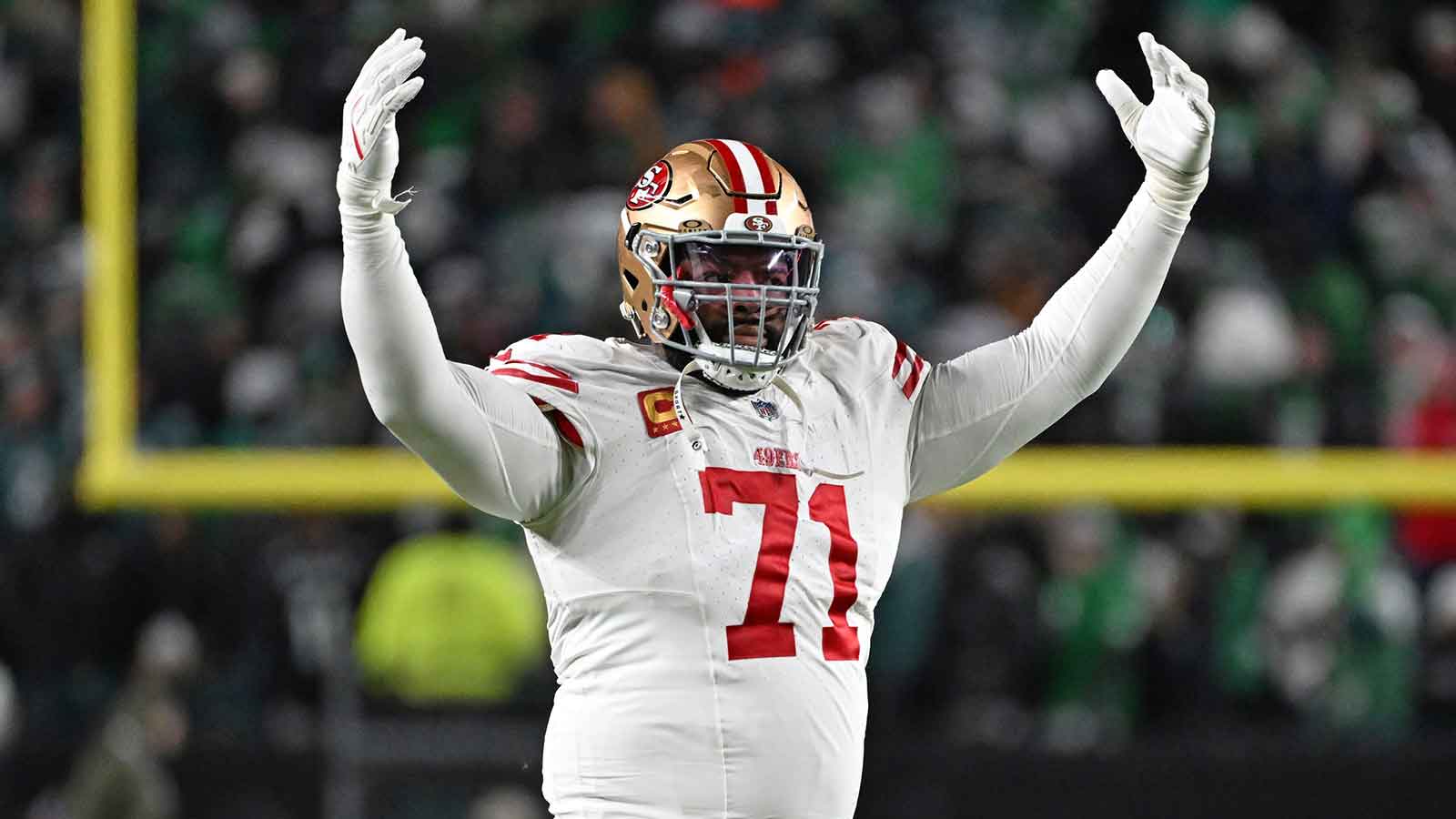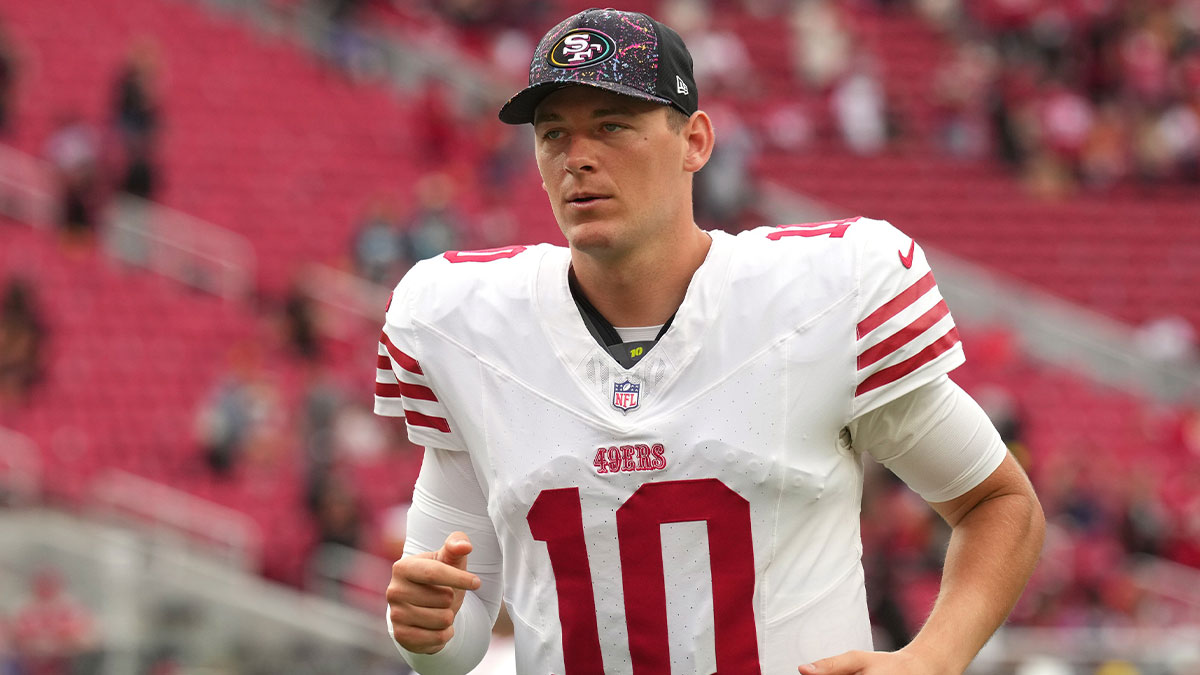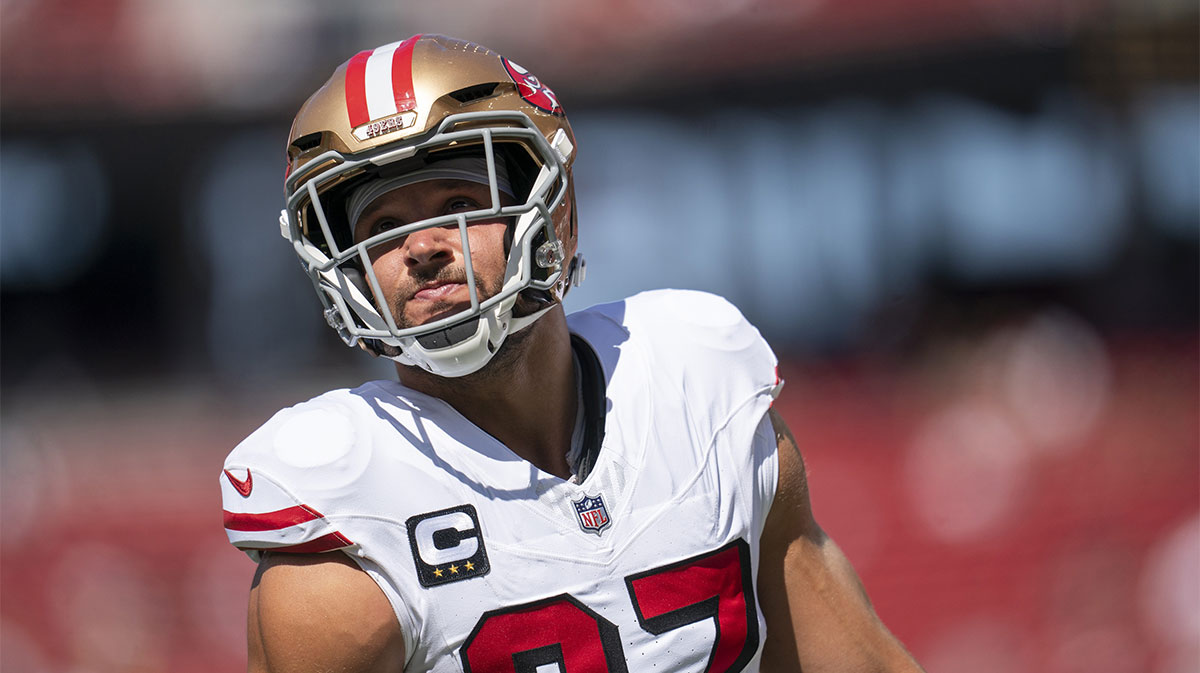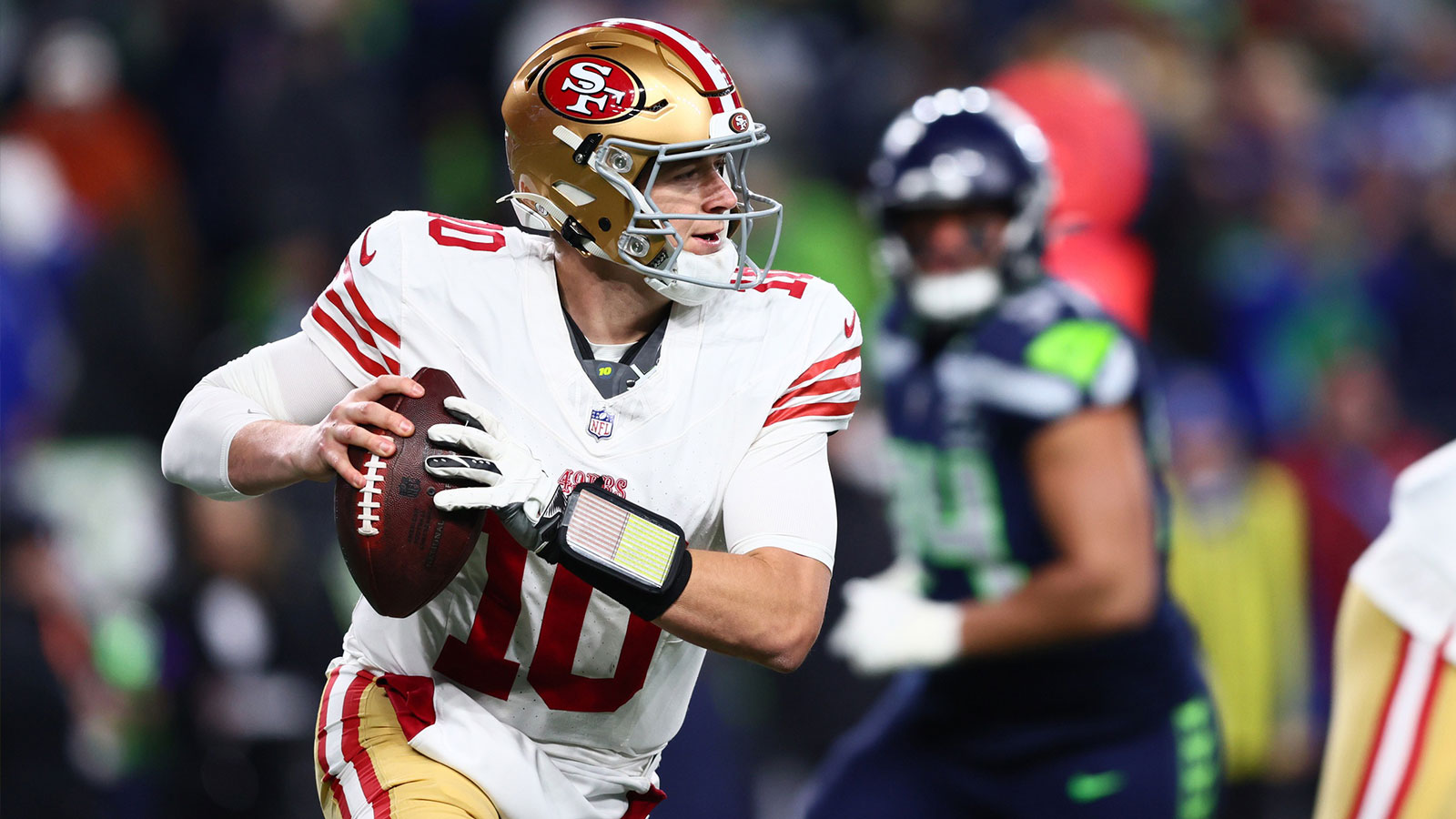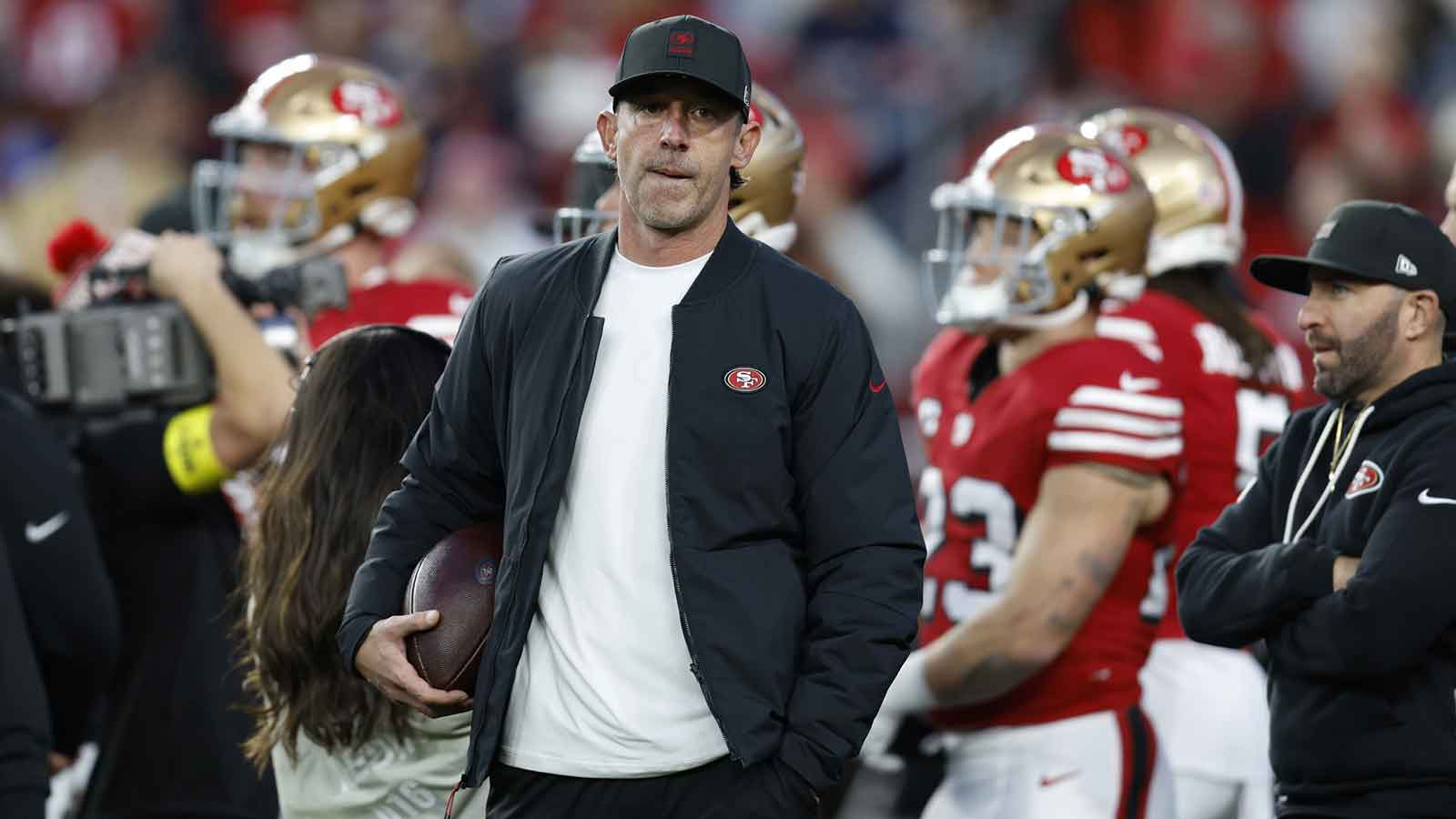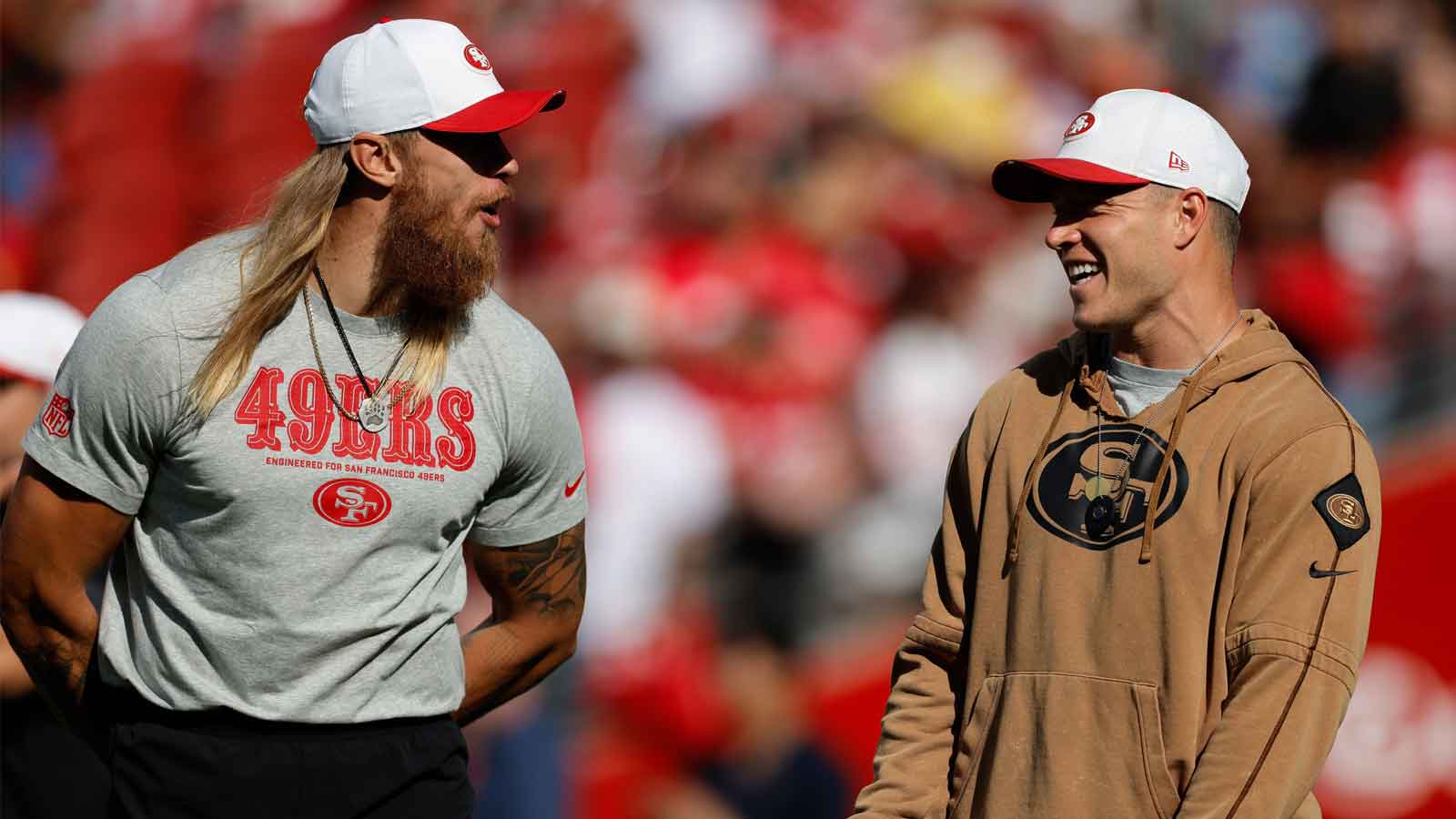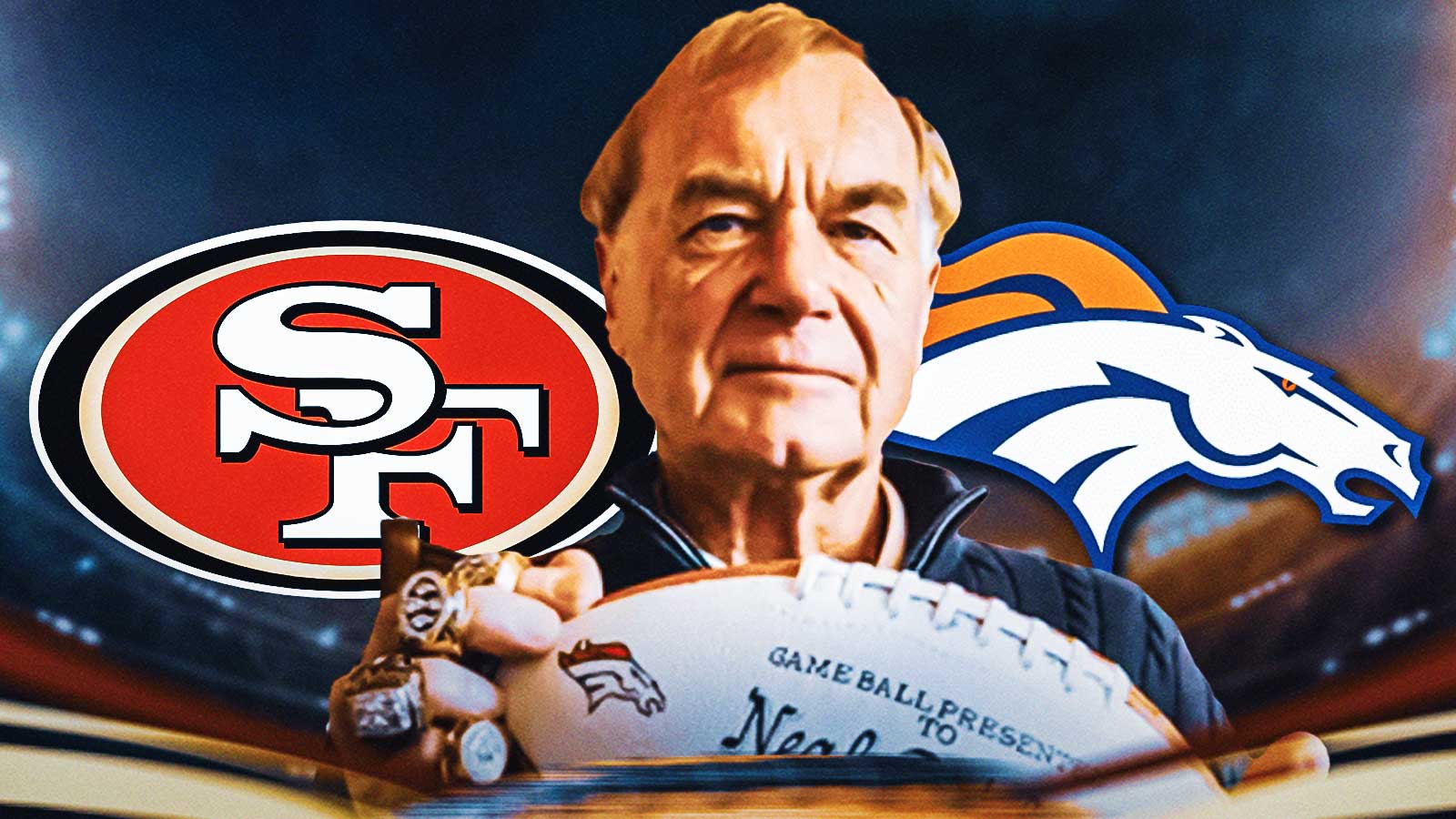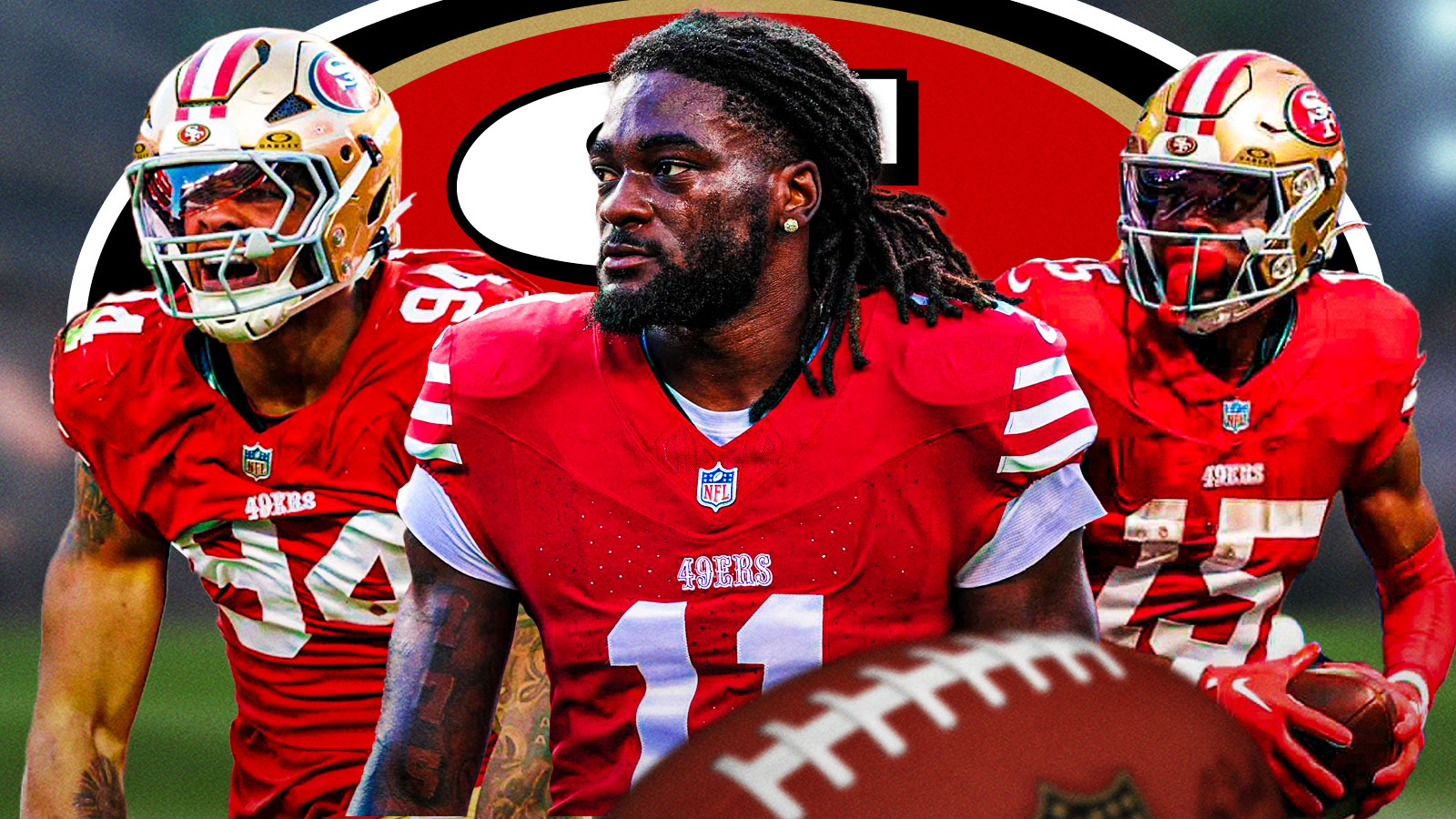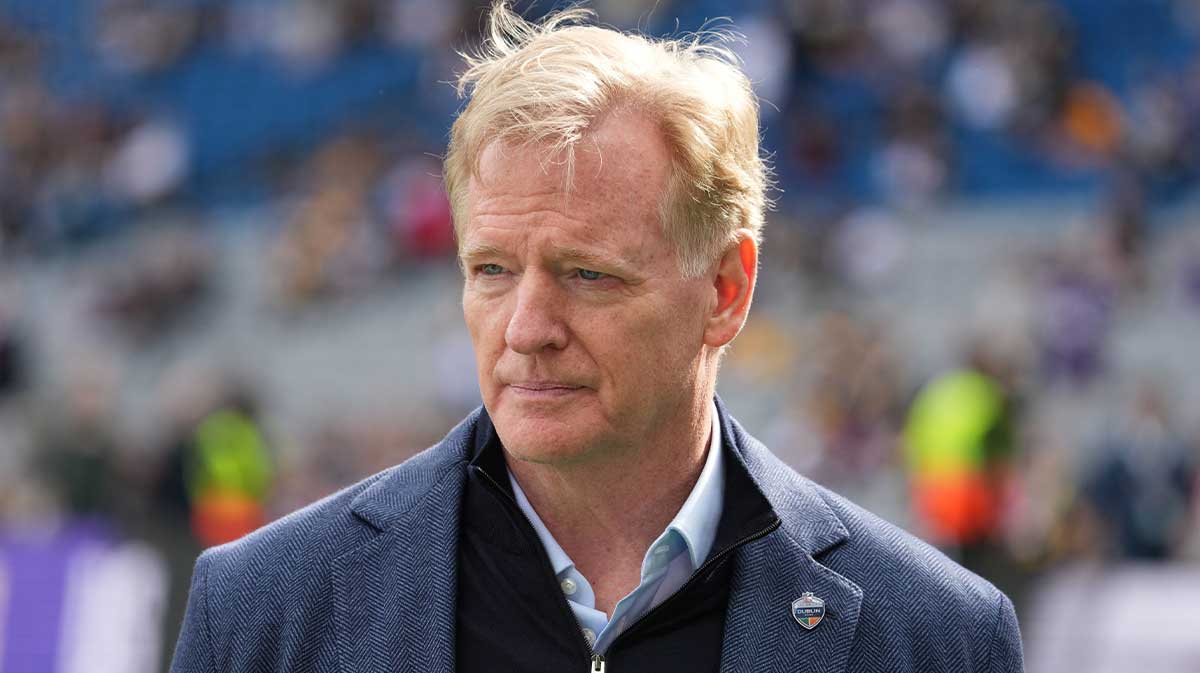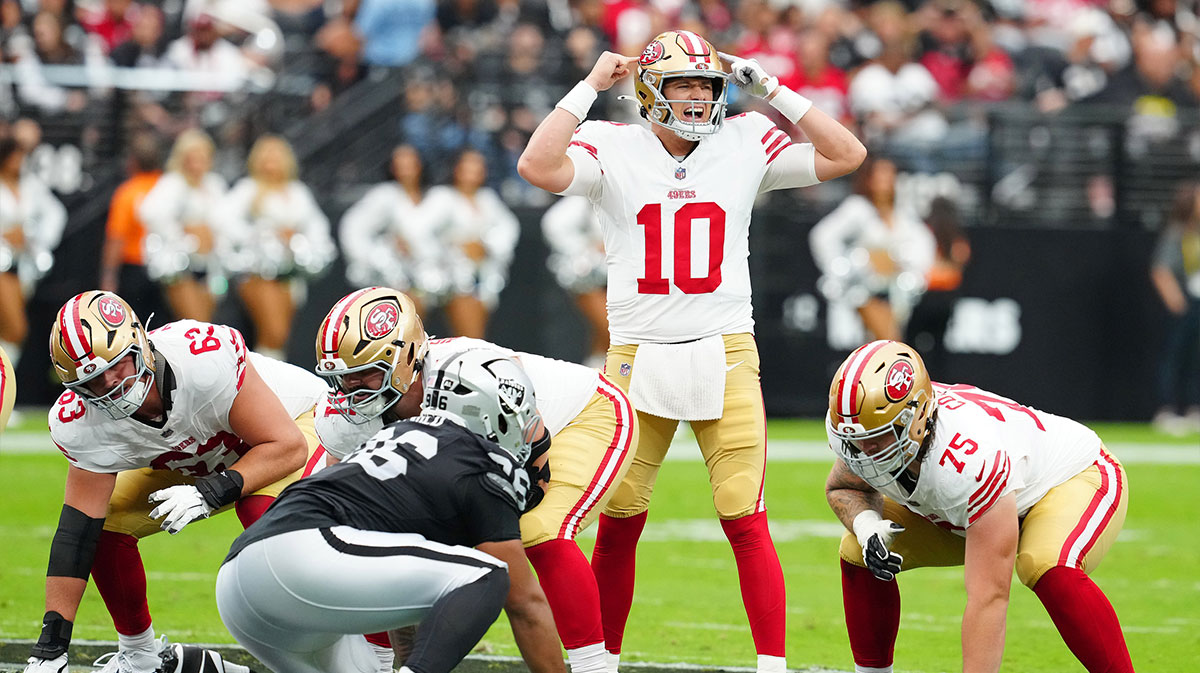After months and months of anticipation, the San Francisco 49ers have made it official: Brock Purdy is the team's long-term quarterback on a five-year, $265 million extension.
Now granted, this move isn't particularly surprising, as while fans of the 49ers and beyond have discussed the prospects of moving on from the Iowa State passer in favor of a massive haul that maintained their cap flexibility. Still, some wondered if the two sides would be able to work out a compromise that would allow San Francisco to have their cake and eat it too, allowing the franchise to continue to bolster their roster with high-priced position players around their quarterback while still giving him a huge payday.
That ultimately did not happen, with Purdy now the seventh-highest-paid player in the NFL on a year-to-year basis, tied with Jared Goff at $53 million behind only Dak Prescott, Joe Burrow, Josh Allen, Jordan Love, Trevor Lawrence, and Tua Tagovailoa.
Now, for Purdy, this is an absolute boon, as his rookie contract was only worth $3.737 million in total, with just $77,008 guaranteed, according to Spotrac. He was absolutely underpaid for his production, as the NFL's performance-based pay bumps program clearly highlighted, but becoming one of the highest-paid players in the league? Even if Purdy's play justifies being paid like a Top 15 player, committing that much money to a quarterback effectively removed the 49ers' competitive advantage, which may make it harder for the team to succeed heading into the future.

Brock Purdy's contract gave the 49ers a major advantage
In 2024, Purdy's contract accounted for .39 percent of the 49ers' total cap spending. Not 38 percent, mind you, .38, as in less than one percent of the $255.4 million cap.
Because Purdy was making such a tiny sum of money, the 49ers were able to load up on expensive role players around him, with Deebo Samuel, George Kittle, Trent Williams, Christian McCaffrey, and Brandon Aiyuk all making premier money for their positions as a result. The 49ers also took some shots on expensive free agent defenders, too, because of Purdy's low pricetag, with Javon Hargrave, Charvarius Ward, and Leonard Floyd all joining homegrown prospects like Nick Bosa, Fred Warner, and Talanoa Hufanga.
Though Purdy's contract just became official, the 49ers already had to say goodbye to multiple top players like Ward, Hufanga, Samuel, and Aaron Banks in free agency, with the team reloading with just a few lower-tier players like Richie Grant, Demarcus Robinson, and Mac Jones, who are more depth pieces than proven stars.
Even if Purdy's contract is given the Howie Roseman special, with his money split up over multiple extra void years to keep his money lower than $53 million a year, his deal will still be much higher than his deal in 2024, which will forever change how John Lynch has to build the team moving forward.

Brock Purdy will have to prove he can win on his own
After being gifted one of the strongest supporting casts in professional sports as a rookie, Purdy's production came back to earth ever so slightly in 2024 because of the 49ers' diminished supporting cast, with the lack of Aiyuk for all of the season and Christian McCaffrey for most of it, leading to a season with a career-low completion percentage, a career-low touchdown percentage, and a career-high interception percentage. Sure, Purdy still threw for 3,864 yards and 20 touchdowns, but he was picked off 12 times, was sacked 31, and ultimately only led his team to a 6-9 record, which is the worst mark of his career.
Purdy actually won more games as a rookie than in 2024 if you count the playoffs, with Mr. Irrelevant turning in an incredible run on the way to a Super Bowl loss.
With Purdy now locked up on a new five-year, $265 million extension, the pressure will be on his shoulders even more to get the 49ers back to the playoffs. Purdy will have to hope his new-look offensive line and adjusted wide receivers room will be able to hold things down in the place of former long-term starters, and that Christian McCaffrey can return to his former glory, which feels rather unlikely, considering how much he had to do in order to even see the field in 2024.
Should the 49ers have traded Purdy to the New York Giants and built their team around a free agent like Mac Jones? Was repeatedly passing on Shedeur Sanders a mistake, as he could have slid right in as a new QB1 and given the team four more years of cheap runway for Kyle Shanahan? In the end, the 49ers almost had to give Purdy the bag to keep him around, as franchise quarterbacks are the scarcest commodity in the NFL, but in doing so, the team also made their roster-building strategy a whole lot harder, as they'll now have to account for a fifth of their cap space – give or take – going to one player, instead of split between multiple elite starters.

